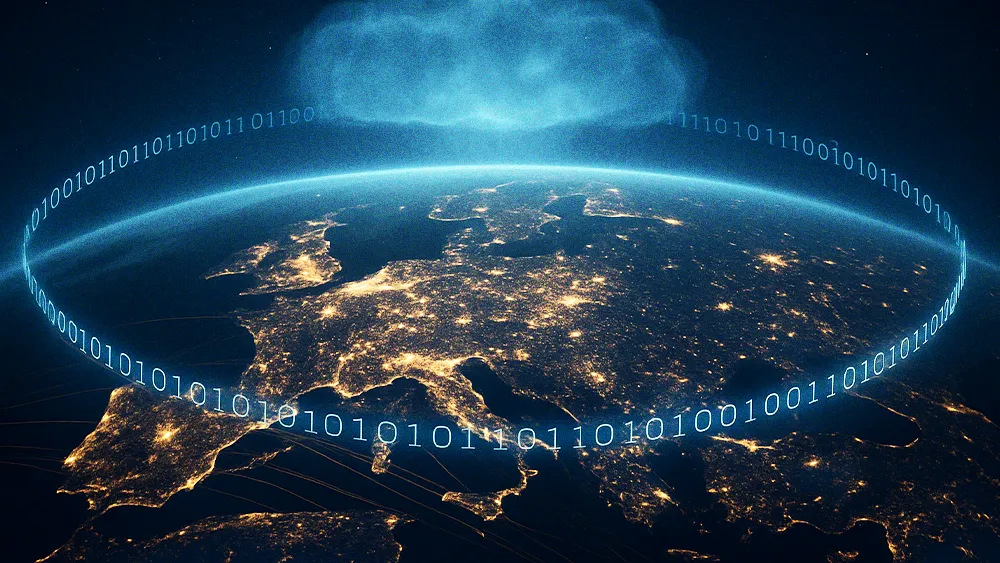
European organizations in critical sectors are seeking AI solutions that guarantee data security and independence from foreign laws and big tech vendor lock-in.
Gilles Closset, Global AI Ecosystem Leader at OVHcloud, details how a “sovereign AI” model provides a solution through legal, technological, and operational independence.
Using the partnership with France Travail as an example, Closset explained how OVHcloud uses a closed-loop system to ensure sensitive data never leaves its European infrastructure.

In the global race for AI supremacy, the prevailing narrative often casts Europe as a cautious latecomer, trailing behind the hyper-scaling giants of the US and China. But a string of innovative developments are challenging that assumption, suggesting a different strategy is at play.
We spoke with Gilles Closset, the Global AI Ecosystem Leader at OVHcloud. With a career built on forging technology alliances at companies like Tencent Cloud and a mission focused on accelerating AI adoption through impactful collaboration, Closset is on the front lines of this strategic shift. He argued that for Europe, the future of AI isn’t just about performance, but about building an ecosystem of trust.
Closset has championed the recent partnership between OVHcloud and France Travail, the national public employment agency, to build a sovereign AI system is more than just a technological milestone. It’s a powerful argument that Europe isn’t just catching up; it’s pioneering a new model for how to deploy AI ethically and securely at scale—one that prioritizes sovereignty from the very beginning.
Short on long term goals: “We tend to overestimate the short term impact, but underestimate the long term impact of a new technology,” Closset stated. “At the moment there is a lot of hype about the potential and new services that will come with AI, but it tends to lag between the promises and what we actually see getting real in our day-to-day life. The changes that will come in maybe five or 10 years are actually quite hard to guess and imagine from today because we will have a very large transformation.”
A shield from foreign law: For OVHcloud and its partners, sovereign AI is not a vague marketing slogan but a concrete, three-part guarantee. The first pillar is legal immunity. “We like to say that we are immune to extraterritorial laws, especially the FISA or the Cloud Act, that are related to American companies even if they operate services in Europe,” Closset explained. “When a customer runs services on an American cloud provider in Europe, they still need to comply with the Cloud Act or FISA. This is not our case.”
We are advocating for open source technologies and this allows our customer to move out of OVHcloud to another provider if they want to,” he said. This commitment ensures that clients are not permanently tied to a single platform.
An independent operation: “We do not rely on external companies, even less so companies from outside of Europe,” Closset noted. “The technical people running the services and the customer support are all from our company, so we can operate the services ourselves.” For organizations like France Travail, which handle the sensitive personal data of millions of citizens, these guarantees were non-negotiable. “It was very important for them to have those guarantees. And that’s how we started to collaborate.”

Such bold promises require an equally robust technical architecture. Closset demystified how OVHcloud ensures that customer data remains completely insulated, explaining that the company has built a closed-loop system that eliminates the need for external data processing.
A closed loop by design: “We have downloaded the models and we have them running on our infrastructure. And basically because we have all that is required to run those AI models, we don’t need to have anything going outside,” he said. “That’s how we can guarantee to our end customers that actually everything that is processed at OVHcloud does not leave our infrastructure.”
While the France Travail partnership is a flagship example, Closset described it as a blueprint for a much broader transformation across all of Europe’s most critical sectors. The demand for sovereign AI, he argued, is growing rapidly anywhere sensitive data and strategic independence are paramount.
A strategic imperative: “Everything that is very public-oriented or strategic is now investigating ways to develop sovereign AI,” Closset said. “They want to be sovereign, which means being independent from external parties.”
Controlling the data workflows: “I think it’s only now something that is starting to be really understood by companies, that it’s important for them to control the data workflows from their processes and applications,” Closset reflected. “And we see now more and more requests going this way and yeah, I bet that we will have more stories like this to review in the future.